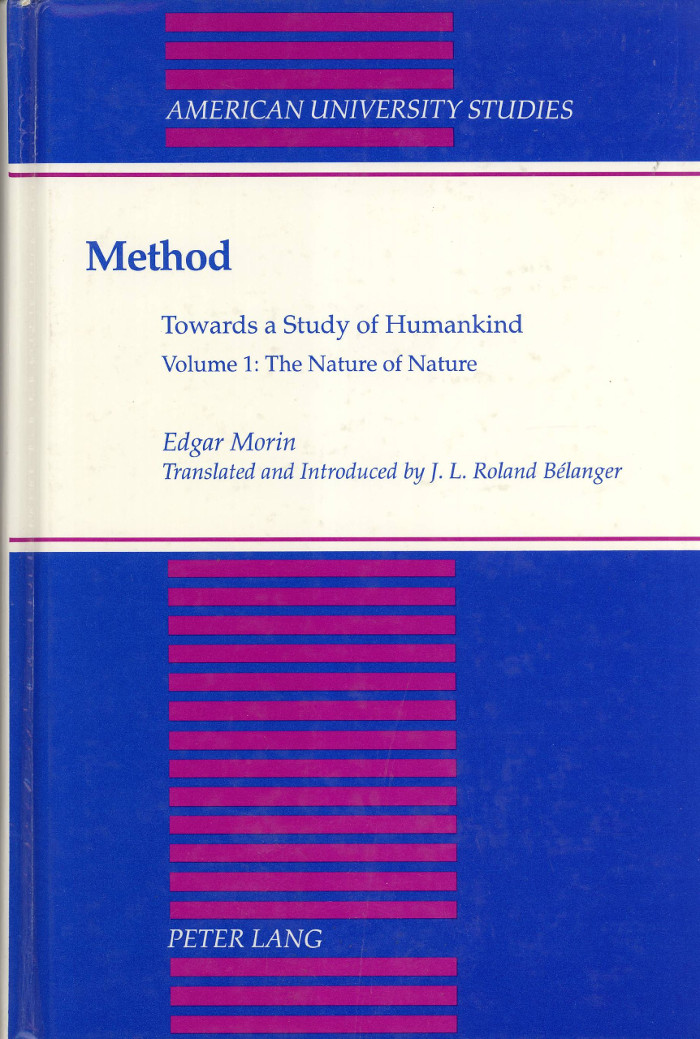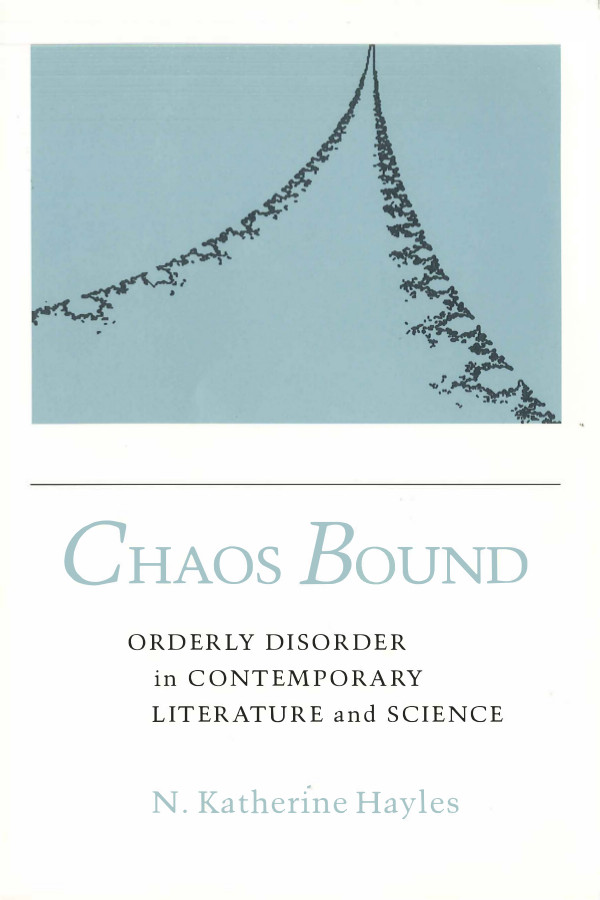Edgar Morin: Method, vol. 1: The Nature of Nature (1977–) [PT, EN, ES]
Filed under book | Tags: · anthropology, being, biology, chaos, complexity, cybernetics, epistemology, event, generativity, human, information theory, knowledge, machine, methodology, nature, organization, physics, politics, recursion, self, sociology, systems theory

“Method: The Nature of Nature is the first of several volumes exposing Edgar Morin’s general systems view on life and society. The present volume maintains that the organization of all life and society necessitates the simultaneous interplay of order and disorder. All systems, physical, biological, social, political and informational, incessantly reshape part and whole through feedback, thereby generating increasingly complex systems. For continued evolution, these simultaneously complementary, concurrent, and antagonistic systems require a priority of love over truth, of subject over object, of Sy-bernetics over cybernetics.”
First published in French as La Méthode, t. 1: La Nature de la nature, 1977.
English edition
Translated and Introduced by J.L. Roland Bélanger
Publisher Peter Lang, 1992
ISBN 0820418781
435 pages
Interview with Morin by his translator Ana Sánchez, 2011
Publisher (EN)
WorldCat (EN)
O método 1. A natureza da natureza (Portuguese, trans. Maria Gabriela de Bragança, 2nd ed., c1987, 12 MB)
Method, 1: The Nature of Nature (English, trans. J.L. Roland Bélanger, 1992, 17 MB)
El método 1. La naturaleza de la naturaleza (Spanish, trans. Ana Sánchez and Dora Sánchez García, 2001, 4 MB)
Friedrich Kittler: The Truth of the Technological World: Essays on the Genealogy of Presence (2013–) [DE, EN]
Filed under book | Tags: · antiquity, computing, cybernetics, film, information theory, literary theory, literature, media, media technology, media theory, noise, philosophy, psychoanalysis, software, sound recording, technology, telegraphy, theory, typewriter, war, writing

“Few German scholars in the past 50 years have had such a lasting impact on the cultural situation of our time, including its academic institutions, as Friedrich Kittler. It is in large part due to his writings that the radio, the gramophone, and the computer are not just objects of cultural fascination, but also of philosophical reflection.
This volume contains a collection of essays written by Kittler over the course of 40 years which serve as a testament to the enormous breadth, intensity, and the singular creativity of his thought.”
German edition
Edited and with an Afterword by Hans Ulrich Gumbrecht
Publisher Suhrkamp, Berlin, 2013
ISBN 9783518732984
432 pages
English edition
Translated by Erik Butler
Publisher Stanford University Press, 2014
ISBN 9780804792622
400 pages
Reviews: Oliver Jahraus (zfm, 2014), Stavros Arabatzis (Weimarer Beiträge, 2014).
Publisher (DE)
Publisher (EN)
Worldcat (DE)
Worldcat (EN)
Die Wahrheit der technischen Welt (German, EPUB, updated on 2019-11-2)
The Truth of the Technological World (English, updated on 2019-11-2)
N. Katherine Hayles: Chaos Bound: Orderly Disorder in Contemporary Literature and Science (1990)
Filed under book | Tags: · chaos theory, entropy, history of literature, information theory, literary theory, literature, nonlinearity, physics, postmodernism, poststructuralism, science, thermodynamics, writing

“At the same time that the study of nonlinear dynamics came into its own in the sciences, the focus of literary studies shifted toward local, fragmentary modes of analysis in which texts were no longer regarded as deterministic or predictable. N. Katherine Hayles here investigates parallels between contemporary literature and critical theory and the emerging interdisciplinary field known as the science of chaos. She finds in both scientific and literary discourse new interpretations of chaos, which is seen no longer as disorder but as a locus of maximum information and complexity. The new paradigm of chaos includes elements that, Hayles shows, were evident in literary theory and literature before they became prominent in the sciences. She asserts that such similarities between the natural and human sciences are the result not of direct influence but of roots in a common cultural matrix.
Hayles traces the evolution of the concept of chaos and evaluates the work of such theorists as Prigogine, Feigenbaum, and Mandelbrot, for whom chaos entails an unpredictably open universe in which knowledge is limited to local sites and scientific models can never exhaust the possibilities of the actual. But this view does not imply that scientists have given up the search for global explanations of natural phenomena, for chaos is conceived of as containing its own form of order. Hayles envisions chaos as a double-edged sword: it can be viewed either as a recognition that disorder plays a more important role in natural processes than had hitherto been recognized or as an extension of order into areas that had hitherto resisted formalization. She examines structures and themes of disorder in The Education of Henry Adams, Doris Lessing’s Golden Notebook, and works by Stanislaw Lem. Hayles concludes by showing how the writings of poststructuralist theorists incorporate central features of chaos theory-such as an interest in relating local sites to global structures; a conception of order and disorder as interpenetrating rather than opposed; an awareness that in complex systems small causes can lead to massive effects; and an understanding that complex systems can be both deterministic and unpredictable.
Chaos Bound contributes to and enliven current debates among chaos theorists, cultural critics and cultural historians, critical theorists, literary critics interested in nineteenth- and twentieth-century literature, researchers in nonlinear dynamics, and others concerned with the relation between science and culture.” (from the back cover)
Publisher Cornell University Press, 1990
ISBN 0801497019, 9780801497018
309 pages
via author
Review: Tom LeClair (SubStance, 1991)
See also Hayles, The Cosmic Web: Scientific Field Models and Literary Strategies in the Twentieth Century, 1984.
Comment (0)
